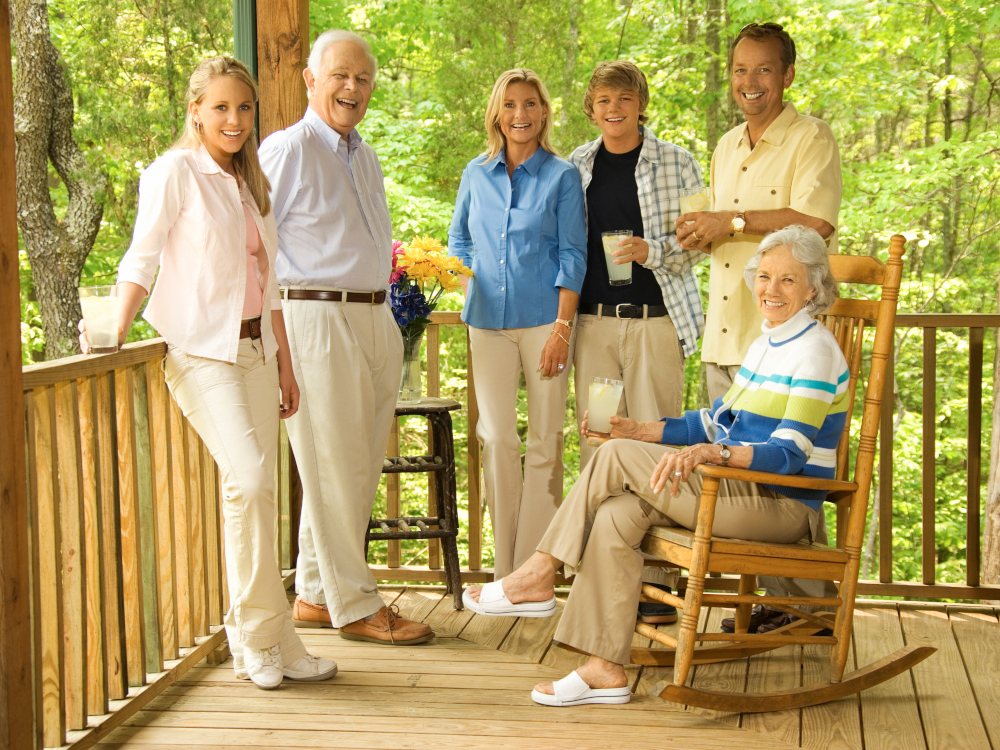Transferring ownership of a cottage to the next generation, or out of the family, can trigger not only emotional trauma but financial frustration as well.
“I have had clients signing an agreement for purchase and sale, and they’re crying,” says Jack Janssen, realtor with Chestnut Park Real Estate Ltd. in Port Carling, the heart of Ontario’s upscale Muskoka cottage country.
“They see their life at the cottage ending. All the history, the memories of the kids growing up are going away, and it can be pretty intense. A lot of properties have been in families for many years,” he says.
Even if the owner aims to keep the property in the family, after they die, whether it is sold or stays with the next generation, the children take a tax hit on its increase in value.
But with a bit of foresight, plus professional advice and planning, property owners can minimize the emotional trauma.
“There is no perfect solution for transferring a property to the next generation. Every option has its positive aspects and its drawbacks. The key is to pick the option that has what I call ‘manageable disadvantages’ — these will be different for every family,” says Carol Willes, director of estate planning, BMO Private Wealth.
Taxes and transfer timing
The biggest disadvantages to transferring a family leisure property involve taxes and the timing of the transfer, she explains.
“No matter what you do, there is going to be a tax bill when you transfer a recreational property to someone who is not your spouse. The decision can be whether you want to do it now or after you’re dead,” she adds. If you opt for the latter choice, there may be other assets in your estate, such as life insurance, that can cover some of the costs for your heirs.
This wasn’t a big deal when modest cottages sold for a few thousand dollars and hardly went up in value. But many properties in desirable areas such as Muskoka have soared over time, particularly during the COVID-19 pandemic, as city-dwellers seek to escape to the bucolic countryside.
According to another Muskoka brokerage, Harvey Kalles Real Estate Ltd., the average price of cottages on the three major lakes in that coveted resort region jumped to more than $2.3 million, up 23.7 per cent, between January 2020 and the beginning of this year alone.
This can be a windfall, but it can complicate matters. It leaves families with several choices that all have some advantages and some drawbacks.
Family conflict
While some families might share a large property, not all families are alike. Sometimes sharing can lead to problems with scheduling and conflict between different lifestyles among different branches of the family.
Another option is for one family member to buy out the other members, who can then get their own places. While this, too, can work for some families, it assumes that one family member both has the funds to buy the others out and wants to do so.
“Not everyone wants to have a property and feel obligated to spend all their summer and vacation time there,” Janssen says.
A life insurance policy can provide proceeds to pay some of the taxes that come due when a property is transferred, but for very expensive properties, the insurance proceeds may not be enough.
“If your property has gone up by $1 million, you’re looking at a $250,000 tax bill,” Janssen says.
Putting the property into a trust is another possibility. The owner names his or her spouse as co-trustee, and the survivor names co-trustees, such as children, to co-manage the property and take over when the survivor dies. Capital gains taxes are still due when the survivor leaves the property to the co-trustees, but the trustees have up to 21 years to decide who should inherit the property.
Trusts can buy time
Willes says she has also come across an intriguing idea for some wealthy leisure property owners — a not-for-profit corporation to own and manage the family’s place.
“The family all chipped in and paid the taxes out of grandma and grandpa’s estate, and the family members are all dues-paying members. They agree on who takes care of what, who can be part of the corporation — in their case blood relatives only — and they all get along and enjoy the cottage,” she says.
“It’s an interesting idea, but people who do this have to be careful, because a corporation owning a cottage is a bit of a gray area,” says Toronto tax lawyer Anna Malazhavaya. “It can work if it’s run like a club, with dues-paying members who take no profit, but the family has to be careful to avoid situations such as renting out the property for short-term visitors.”
Some families with large properties ease the transition by severing their lots and selling or giving subdivided parts to family members, so they can stay close but not in the same house, Janssen says. “Some people even thought to buy the neighbours’ property years ago to do this,” he says.
Even when a place ends up being sold, sellers may take comfort in the next family’s love for the property. “Sometimes a family appreciates a personal letter from the buyer, letting them know that they’re not going to bulldoze it to build a hotel, that they want to create new memories on the property for their own kids and grandkids,” he says.
Please visit here to see information about our standards of journalistic excellence.

